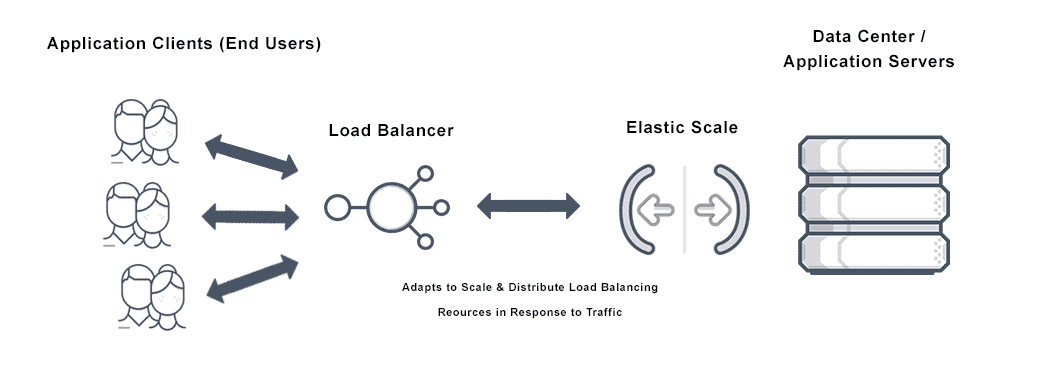Elastic Scale
Elastic Scale Definition With elastic scale, data centers are able to adapt to increases in application traffic by rapidly adding load balancing and application resources.

What is Elastic Scale?
Elastic scaling is the ability to automatically add or remove compute or networking infrastructure based on changing application traffic patterns. Elastic load balancer auto scaling is used to automatically adjust the amount of resources (for instance, number of load balancers) that are allocated to deliver an application in response to changes in traffic patterns.
How Does Elastic Scale Work?
Elastic scaling works using an initial launch configuration and scaling policies. If key performance parameters are met, the load balancer will add or remove instances of itself to ensure consistency application delivery. This ensures the load balancer will continue to respond to requests during times of rapid demand change or if infrastructure performance degrades.
How Does Elastic Scale Apply to Load Balancing ?
Load balancing routes traffic from overloaded servers to servers that have capacity. When elastic scaling is applied to load balancing, it can automatically determine how to route traffic and to spin up additional instances if workloads exceed capacity. As more load balancing servers are brought online, capacity to handle peak traffic increases. This rapid deployment of new load balancers to handle bursty traffic is called elastic scale. The same applies as demand falls, and application delivery servers are taken offline. This is only possible with software load balancers. Hardware load balancers must be commissions to handle the peak load, and sit idle at other times.
What are the Benefits of Elastic Scale ?
• Better fault tolerance – for example, Elastic Scale in AWS environments can detect when an server is unhealthy, terminate it and launch an instance to replace it.
• Better availability – elastic scaling helps ensure that an instance has the capacity to handle the current traffic demand.
• Better cost management – elastic scaling can adjust the capacity as needed. Money is saved by only paying for instances that are used when they are needed.
Does VMware NSX Advanced Load Balancer offer Elastic Scale?
Yes. Elastic scaling is a core characteristic of the VMware NSX Advanced Load Balancer that allows it to automatically create (scale out) or delete (scale in) SEs to adjust capacity based on end-user traffic and virtual service health scores. Since the VMware NSX Advanced Load Balancer is software-defined it is able to offer highly elastic load balancing and application services.
For more on the actual implementation of load balancing, security applications and web application firewalls check out our Application Delivery How-To Videos.
For more information on Elastic Scale see the following resources: